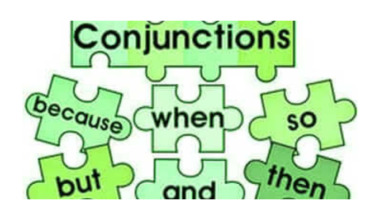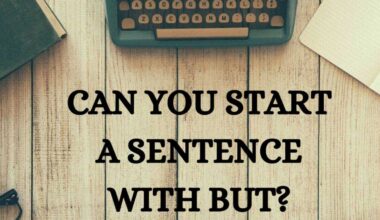Knowing when to use whom in a sentence can feel confusing, but mastering it will make your grammar shine and enhance your professional or formal communication.
“Whom” is an objective pronoun in English, which means it receives the action of the verb in a sentence. You should use “whom” when referring to the object of the sentence and “who” for the subject.
In this guide, we’ll walk through 10 powerful examples showing exactly when to use “whom” and when to avoid it, including practical scenarios for everyday use.
Understanding the Role of “Whom” in a Sentence
To make sense of “whom” in a sentence, start with the basics of subject vs. object:
- Who is used for the subject of a sentence (the one performing the action).
- Whom is used for the object (the one receiving the action).
Quick Test for Using “Whom” Correctly
A simple trick to determine if you need “whom” is to replace the part of the sentence with “he/him” or “she/her.” If “him” or “her” fits, “whom” is correct because they are object pronouns. If “he” or “she” makes sense, use “who.”
For example:
- Whom did you invite? (Answer: “I invited him/her.”)
- Who invited you? (Answer: “He/She invited me.”)
10 Practical Examples of Using Whom in a Sentence
1. In Professional Emails
Example: “To whom it may concern, please find attached the annual report.”
Explanation: “Whom” is correct because it is the object of the concern—it’s a formality addressing an unknown recipient and conveys professionalism.
2. Asking Questions with “Whom”
Example: “Whom did you invite to the conference?”
Explanation: Here, “whom” is the object of the verb “invite.” The answer to “whom did you invite?” would be “I invited him/her,” making “whom” the correct choice.
3. In Formal Writing
Example: “The consultant, whom we hired last month, will be leading the project.”
Explanation: In this case, “whom” is used as the object of the verb “hired.” We hired “whom”? Answer: him/her, reinforcing “whom” as the appropriate choice.
4. In Complex Questions with “Whom”
Example: “Whom should I contact regarding the contract renewal?”
Explanation: Since the answer to this question would be “contact him/her,” we use “whom” to maintain the object position in the sentence.
5. Using “Whom” in Casual Conversations
Example: “The person whom I saw at the coffee shop looked familiar.”
Explanation: Here, “whom” is correct because it is the object of the verb “saw.” The sentence could be rephrased to “I saw him at the coffee shop,” confirming that “whom” is accurate.
Advanced Tips: When to Use “Whom” in Complex Sentences
Mastering “whom” in more challenging sentences can refine your command of English. Here are some practical scenarios:
6. “Whom” After Prepositions
Example: “To whom was the letter addressed?”
Explanation: “Whom” follows the preposition “to” and correctly fits as the object of the sentence. Prepositions are often strong indicators that “whom” may be the right choice.
7. “Whom” in Formal Speeches
Example: “Our gratitude goes to those whom we owe our success.”
Explanation: “Whom” here serves as the object of “owe,” following the same objective rule: we owe “him/her,” not “he/she.”
8. Using “Whom” in Indirect Questions
Example: “I wondered whom she was speaking with.”
Explanation: In this sentence, “whom” is the object of the phrase “speaking with.” Even in indirect questions, “whom” holds its object role.
9. “Whom” in Dependent Clauses
Example: “The candidate whom they shortlisted is an excellent choice.”
Explanation: “Whom” functions as the object in this dependent clause, as the action of shortlisting applies to “whom.”
10. Distinguishing “Who” vs. “Whom” in Tricky Sentences
Example: “They are the people whom I admire.”
Explanation: “Whom” is correct because it serves as the object of admiration in this context: “I admire him/her.”
Common Mistakes to Avoid with “Whom”
Understanding “whom” takes practice, and it’s easy to make mistakes. Here are common errors to look out for:
- Using “Whom” as a Subject: Avoid sentences like, “Whom is coming to dinner?” where “whom” is wrongly used in the subject position. “Who is coming to dinner?” is correct.
- Skipping “Whom” in Formal Writing: In formal contexts like business communication, don’t replace “whom” with “who” as it may come across as casual or unpolished.
Why “Whom” Matters in Formal English
In professional and academic settings, using “whom” correctly can enhance the clarity and sophistication of your writing. Grammar accuracy often reflects attention to detail, and correctly using “whom” helps in making a strong impression, especially in professional emails, reports, and presentations.
Additional Tips to Remember “Whom” Usage
- Think of Prepositions: Many formal sentences use “whom” after a preposition. If you see “to,” “for,” “with,” “by,” etc., consider if “whom” might be necessary.
- Answer with a Pronoun Test: When in doubt, answer the question in your mind with “him/her” (for “whom”) or “he/she” (for “who”) to decide which fits.
- Formal Phrasing: Many classic phrases like “To whom it may concern” and “With whom were you speaking?” help reinforce the proper use of “whom.”
- Practice in Speech: The more you use “whom” correctly, the easier it becomes to recall in writing. Try using “whom” in your everyday language for practice in distinguishing it from “who.”
Conclusion
Learning to use “whom” in a sentence can be straightforward with a few easy rules and examples. Practice with common phrases and questions to build confidence in using “whom” correctly.
In formal contexts, understanding “whom” is invaluable for clear, polished communication that sets you apart.
With these tips, you’ll soon be confident in using “whom” whenever the situation calls for it. So, the next time you’re in doubt, ask yourself: does “him” or “her” fit as the answer? If yes, “whom” is your best friend.






